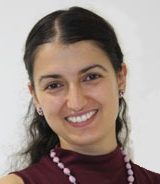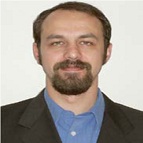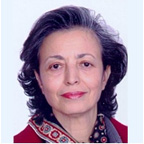- 20 May 2012
ATTITUDES TOWARDS SCIENCE IN THE MIDDLE EAST
Abstract
Since the 17th century positive attitudes toward modern science in China and the Middle East have lagged greatly behind those of the Western world. On a deeper level the issue hinges on the creation of educational institutions supportive of scientific inquiry. In the last analysis only in the last third of the 20th century did attitudes and institutional structures supportive of modern science begin to be broadly and firmly established in the Middle East and China.
About the Speakers

Toby Huff is a Research Associate in the Department of Astronomy at Harvard University and Chancellor Professor Emeritus at UMass Dartmouth. He is the author of The Rise of Early Modern Science: Islam, China and the West (2nded. Cambridge 2003), and Intellectual Curiosity and the Scientific Revolution. A Global Perspective (Cambridge University Press, 2011). He has lectured in Europe, given talks across the Muslim world and lived in Malaysia.

Linda Sellou was born in Bobigny in the suburb of Paris. She got a Master in Chemistry from the Ecole Nationale Superieure de Chimie de Lille and then a PhD in chemistry from the University of Bristol in UK. Her research was conducted at the Bristol Colloid Centre in collaboration with the Bristol Dental school and was focused on the physical and mechanical properties of silica particles utilized as abrasive materials in toothpaste formulation. During her postgrad studies she became a STEM Ambassador and subsequently after she worked for Bristol ChemLabs in their school outreach programme nationally and world-wide. She is now a lecturer at Nanyang Technological University in the School of Physical and Mathematical Sciences.

Dr. Al-Sumait is of Kuwaiti-American heritage and is currently serving as a post-doctoral research fellow at the Middle East Institute in the National University of Singapore. He holds an MA in intercultural communication from the University of New Mexico and a PhD in political communication from the University of Washington. He has lived and worked for several years in Kuwait and traveled throughout the GCC.

An anthropologist and psychologist by profession, Labidi holds a doctorate in psychology and a PhD in anthropology from the University of Paris. Labidi was a professor of clinical psychology at the Faculty of Human Sciences at the University of Tunis, where from 1997-2001 she directed a program on The Construction of Public Morality in the Arab World and Africa (Senegal, South Africa, Tunisia, Egypt). She has been a member of the Institute for Advanced Study, Princeton (1995-1996), fellow at the Woodrow Wilson International Center for Scholars, Washington, DC (2001-2002), visiting professor of psychology at the American University in Cairo (2004-2005) and Yale University (2008-2009), and co-founder and active member of the Association of Tunisian Women for Research and Development and the Tunisian Association for Health Psychology. She is the author of several books and numerous articles on the Arab world, treating subjects such as the history of the feminist movement, psychology and sexuality, the construction of identity, attitudes towards death, among others, and has also organized many national and international conferences and exhibitions in Tunisia. Lilia Labidi was Minister of Woman Affairs in the new Tunisian government of National Unity (January-December 2011), following the overthrow of the old regime.
Event Details
Tower Block Level 2, Bukit Timah Campus
National University of Singapore
469A Bukit Timah Road, Singapore 259770




